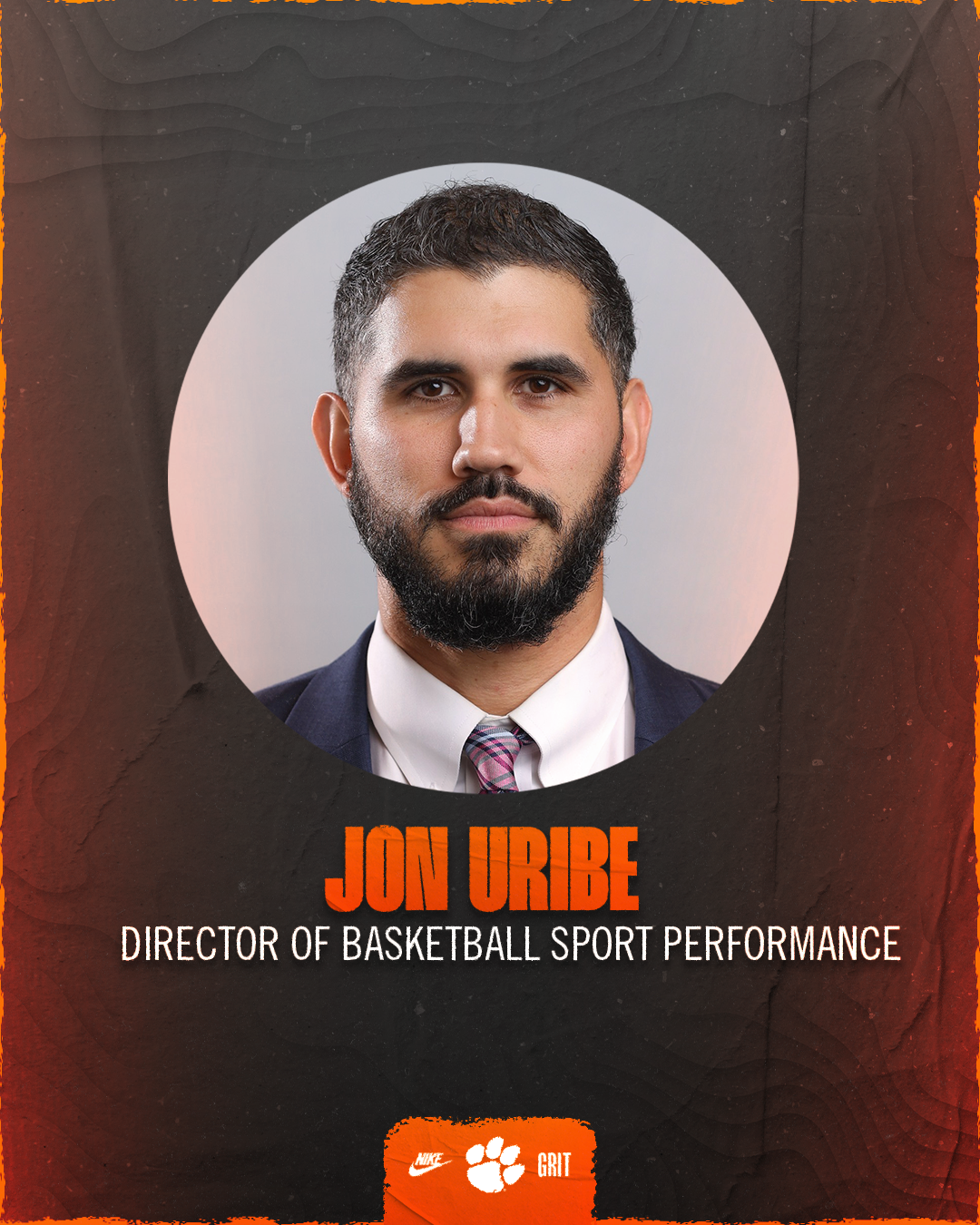Clemson basketball has entered a new era in sport performance under the direction of head coach Brad Brownell, who has made a significant hire to elevate the Tigers’ approach to training, conditioning, and athlete development. Brownell has officially brought in Jon Uribe as the program’s new Director of Basketball Sport Performance, a move that signals Clemson’s growing commitment to holistic player development and competitive excellence.
Uribe, a well-respected figure in collegiate athletic performance circles, arrives at Clemson with a reputation for being detail-oriented, highly analytical, and relentlessly dedicated to optimizing player output on and off the court. His hire is more than just another addition to the coaching staff—it’s a cultural investment in the long-term success of the program. As the landscape of college basketball continues to evolve, the importance of sport performance and individualized player development has grown more central than ever before. With Uribe at the helm of this department, Clemson appears poised to make major strides in strength, conditioning, injury prevention, and recovery.
Uribe’s professional journey is rooted in an evidence-based approach. He holds multiple certifications in performance science and has a background not only in physical training but also in biomechanics and sports nutrition. His philosophy emphasizes precision, player-specific data tracking, and creating training regimens that align with the game’s increasing speed and complexity. Those who have worked with him in the past describe him as a coach who combines modern scientific rigor with old-school toughness—a hybrid that resonates well with today’s generation of student-athletes.
Prior to joining the Tigers, Uribe served in key roles at multiple Division I institutions and spent time working with both men’s and women’s basketball teams, as well as professional athletes during off-season windows. His track record includes helping several NBA Draft hopefuls prepare for the grueling combine and pre-draft workout circuits, tailoring training that maximizes peak performance while minimizing burnout. He’s also recognized for pioneering recovery protocols that incorporate sleep science, hydration tracking, and neurocognitive conditioning—areas that are rapidly becoming staples in elite programs.
Clemson’s basketball program, long defined by its blue-collar grit under Brownell, has seen substantial growth in recent years. A major component of competing in the ever-deepening ACC is being able to match opponents not just in talent and tactics, but in the physical realm of durability, recovery, and explosive power. The Tigers have endured seasons in which depth issues and injuries compromised their ceiling, but with Uribe’s expertise now integrated into the system, the hope is to build stronger, faster, and more resilient athletes from the ground up.
Brad Brownell’s decision to hire Uribe speaks volumes about where he sees the program heading. In a competitive recruiting landscape, it’s no longer enough to promise minutes or exposure—players and their families are increasingly scrutinizing development systems. A name like Uribe, with his record of results and professional connections, adds credibility. For a recruit considering Clemson, the presence of a sport performance expert with such credentials can tip the scale, especially for those with NBA dreams who want assurance that their bodies will be managed as assets, not just workhorses.
Uribe has already begun implementing structural changes in Clemson’s training facility. Reports suggest that he’s overhauling the strength and conditioning playbook, introducing cutting-edge wearable tech that monitors player load, acceleration, and deceleration data. In practice, that means players will no longer rely solely on intuition or traditional fitness tests; instead, their development will be charted and adapted daily, with granular insights into fatigue levels, muscle response, and even emotional readiness.
The psychological side of performance isn’t something Uribe overlooks. In interviews, he’s emphasized the importance of mindset and mental resilience as cornerstones of high-level performance. At previous stops, he collaborated closely with sports psychologists and performance counselors, ensuring that athletes were mentally equipped to handle the rigors of the season. Clemson fans can expect a similar integration of mental training and visualization techniques into the Tigers’ weekly routine.
Perhaps the most exciting aspect of this hire is its long-term implications. A sport performance director doesn’t just impact the current roster—he sets a developmental blueprint for years to come. Uribe’s systems are designed to be sustainable and scalable. Over time, as Clemson builds institutional memory and data across multiple seasons, the program will be able to pinpoint trends in injury risk, identify key performance indicators tied to wins, and make evidence-based decisions on scheduling, recovery, and rotation management.
Players, too, are already responding positively to Uribe’s arrival. Insiders say there’s a renewed energy in the weight room and practice gym, with veterans and newcomers alike buying into the new routines. Trust is a critical component in sport performance, and Uribe is known for building it quickly—communicating not just the “what” of each workout, but the “why.” In a sport where grueling travel, back-to-back games, and high stress levels can take a toll, that clarity can make a meaningful difference in how athletes approach their daily grind.
Uribe’s influence is also expected to extend beyond the men’s team. Clemson’s broader athletic department has shown increasing interest in harmonizing performance practices across sports, and Uribe could serve as a central node in that initiative. His interdisciplinary knowledge and open-source mentality make him a valuable resource not only for basketball, but for the university’s entire performance infrastructure.
Brownell has always been a coach who seeks competitive edges, whether through tactical wrinkles on the court or developmental gains off it. With Jon Uribe now leading the Tigers’ basketball performance program, Brownell has taken a major step in modernizing his approach. It’s a move that may not make headlines like a five-star recruit or a buzzer-beating win, but it’s one that could ultimately shape the foundation of Clemson basketball for the next decade.
In the ultra-competitive world of collegiate athletics, small margins can yield big outcomes. A second quicker to the ball, a higher vertical leap in crunch time, or simply being fresher in the final minutes of a road game—these are the differences that often separate contenders from pretenders. With Uribe guiding sport performance, Clemson aims to stack those margins in its favor.
The transition won’t happen overnight. New philosophies take time to cement, and players need a period of adjustment. But the early signs point to a culture that’s already beginning to embrace a more advanced, data-driven identity. For Brownell, whose teams are known for defense, discipline, and toughness, the infusion of Uribe’s progressive methodologies offers a promising complement. In many ways, it represents the best of both worlds: traditional basketball values buttressed by 21st-century science.
Jon Uribe’s hiring is a strategic investment in the unseen battles—the extra lift sessions, the recovery protocols, the sleep audits, and the sports science reports that quietly pave the path to greatness. In a conference as rugged and ruthless as the ACC, every advantage matters. With Uribe now onboard, Clemson basketball may have just found its next competitive edge.



